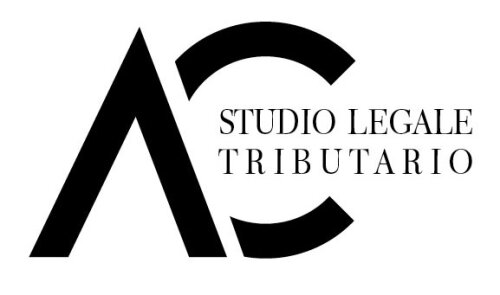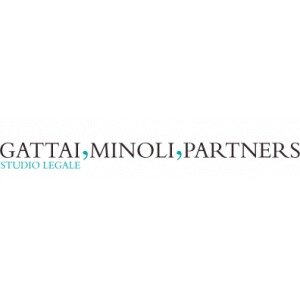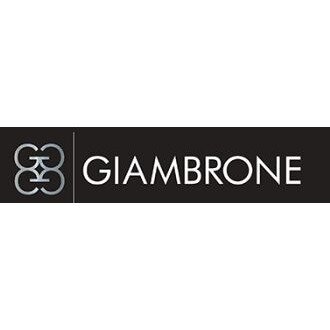Best Private Equity Lawyers in Rome
Share your needs with us, get contacted by law firms.
Free. Takes 2 min.
List of the best lawyers in Rome, Italy
About Private Equity Law in Rome, Italy
Private equity refers to investment activities where funds are directly invested in private companies or used for buyouts of public companies. In Rome, Italy, private equity plays a crucial role in fueling the growth of startups, expanding existing businesses, and facilitating mergers or acquisitions. The city is a significant hub for finance and legal services in Italy, making it an attractive environment for both domestic and international investors. The legal framework is complex and requires careful navigation to comply with national and European Union regulations, making professional legal support essential.
Why You May Need a Lawyer
Private equity transactions often involve substantial capital, intricate deal structures, and a variety of legal risks. Individuals and businesses in Rome may need a private equity lawyer for several reasons. These include structuring investments, negotiating term sheets, conducting due diligence, drafting and reviewing contracts, and ensuring regulatory compliance. Lawyers are also integral in dispute resolution, preparing exit strategies, and handling employment or tax implications arising from private equity deals. Whether you are a fund manager, investor, or business owner seeking capital, having experienced legal counsel protects your interests and provides clarity throughout the process.
Local Laws Overview
The legal environment for private equity in Rome is influenced by Italian national law and European Union regulations. Key considerations include the Civil Code provisions on company law, regulations enforced by the Italian Companies and Exchange Commission (CONSOB), and competition laws overseen by the Italian Competition Authority (AGCM).
Private equity funds must usually comply with specific registration and reporting requirements. Mergers and acquisitions are governed by both the Italian Commercial Code and relevant EU Directives. Additionally, transactions may be subject to antitrust clearances and notification requirements if they surpass certain thresholds. Legal practitioners must also consider the implications of labor, tax, and intellectual property law, depending on the nature of the deal and businesses involved.
Frequently Asked Questions
What is private equity?
Private equity refers to investment funds that acquire equity ownership in private companies or buy out public companies to take them private. These investments are typically made by specialized firms or funds to support growth, restructuring, or management buyouts.
Is private equity legal in Rome, Italy?
Yes, private equity transactions are legal and common in Rome and throughout Italy, provided they comply with national and EU regulations governing finance, company law, and competition.
How do I structure a private equity deal?
Structuring a private equity deal involves selecting the appropriate company vehicle, drafting investment agreements, determining voting rights and profit sharing, and ensuring compliance with relevant laws. Legal advice is crucial to mitigate risks and meet regulatory requirements.
What due diligence is required in private equity transactions?
Due diligence typically covers legal, financial, commercial, and operational aspects of the target entity. Lawyers examine contracts, compliance, liabilities, intellectual property, and employment issues to uncover potential risks before any transaction is finalized.
Are there restrictions for foreign investors in Roman private equity deals?
Italy generally allows foreign investment, but some strategic sectors or larger transactions may be subject to restrictions, notifications, or prior approval, particularly relating to national security, defense, or critical infrastructure.
What taxes apply to private equity investments in Rome?
Italian tax law applies capital gains tax, corporate income tax, and may impose other fiscal charges depending on the structure of the fund, residence of the investors, and nature of the transaction. Proper tax planning and legal counsel are essential to optimize tax efficiency and compliance.
How are disputes in private equity resolved?
Disputes may be resolved through negotiation, mediation, arbitration, or litigation. Many private equity agreements include arbitration clauses specifying how and where disputes should be handled, often favoring resolution in Italy.
What role does CONSOB play in private equity?
CONSOB oversees compliance with securities and public offer regulations in Italy. It may require notifications, approve prospectuses, and monitor fund managers to protect investors and ensure market transparency.
How can I exit a private equity investment?
Common exit strategies in Rome include trade sales, initial public offerings (IPOs), secondary buyouts, or recapitalization. Each exit route involves specific legal and regulatory considerations, and should be structured in advance within the initial agreements.
Do I need a lawyer for every private equity deal?
While not legally mandatory, professional legal advice is highly recommended for any private equity transaction due to their complexity, high value, and potential risks involved in structuring, negotiating, and closing the deals.
Additional Resources
- Italian Companies and Exchange Commission (CONSOB): The authority responsible for regulating financial markets, including private equity and securities offerings. - Italian Private Equity and Venture Capital Association (AIFI): A professional body providing information and guidance on best practices in private equity. - Italian Competition Authority (AGCM): Oversees competition laws applicable to mergers and acquisitions. - Ministry of Economic Development (Ministero dello Sviluppo Economico): Provides regulatory and economic guidance for business activities in Italy. - Local chambers of commerce in Rome: Offer business registration and advice. - Legal clinics and professional organizations: Many Rome-based law firms specialize in corporate and private equity law and may offer initial consultations.
Next Steps
If you are considering or involved in a private equity transaction in Rome, your next step should be seeking tailored legal advice. Prepare all relevant documentation, including financial statements, contracts, and corporate records. Identify your objectives and be ready to discuss the scale and nature of your investment or business. Contact a qualified lawyer or law firm with expertise in private equity to schedule an initial consultation. They can evaluate your case, explain your legal obligations, and help structure transactions in compliance with Italian and EU law. Staying informed and getting professional guidance will ensure your interests are protected throughout every phase of the investment process.
Lawzana helps you find the best lawyers and law firms in Rome through a curated and pre-screened list of qualified legal professionals. Our platform offers rankings and detailed profiles of attorneys and law firms, allowing you to compare based on practice areas, including Private Equity, experience, and client feedback.
Each profile includes a description of the firm's areas of practice, client reviews, team members and partners, year of establishment, spoken languages, office locations, contact information, social media presence, and any published articles or resources. Most firms on our platform speak English and are experienced in both local and international legal matters.
Get a quote from top-rated law firms in Rome, Italy — quickly, securely, and without unnecessary hassle.
Disclaimer:
The information provided on this page is for general informational purposes only and does not constitute legal advice. While we strive to ensure the accuracy and relevance of the content, legal information may change over time, and interpretations of the law can vary. You should always consult with a qualified legal professional for advice specific to your situation.
We disclaim all liability for actions taken or not taken based on the content of this page. If you believe any information is incorrect or outdated, please contact us, and we will review and update it where appropriate.
















